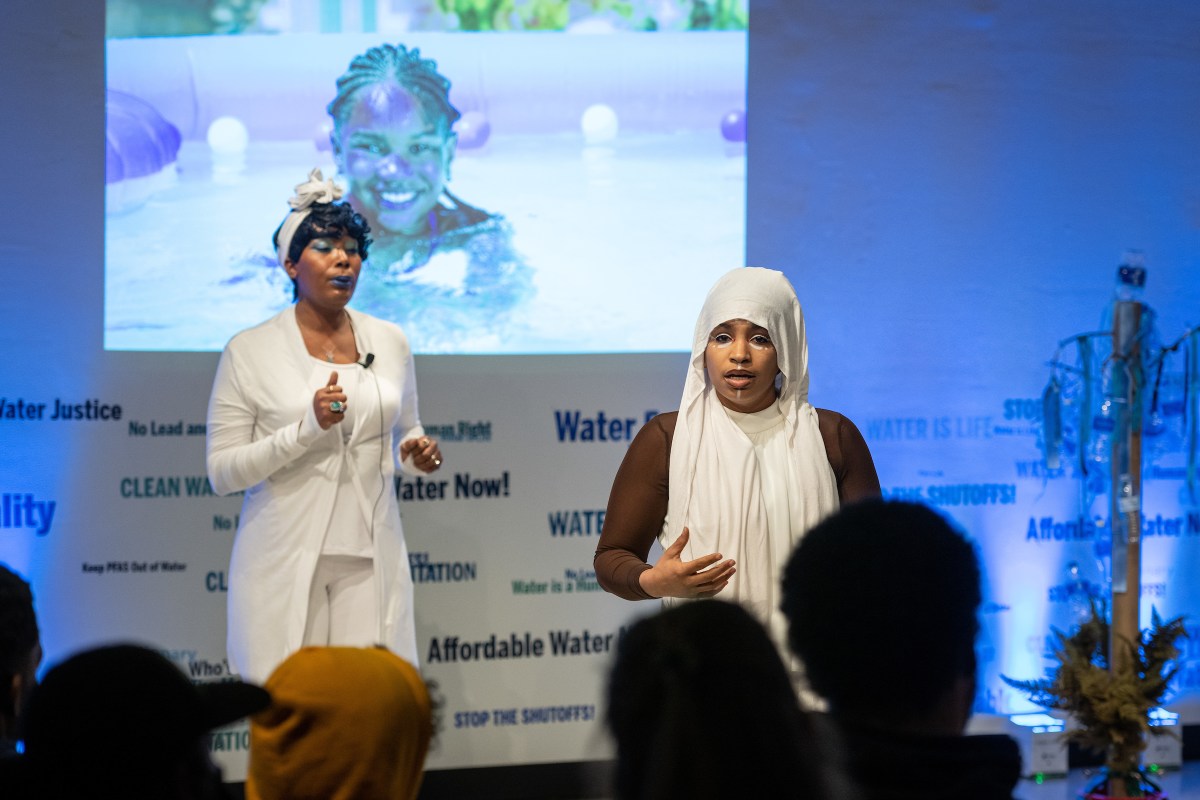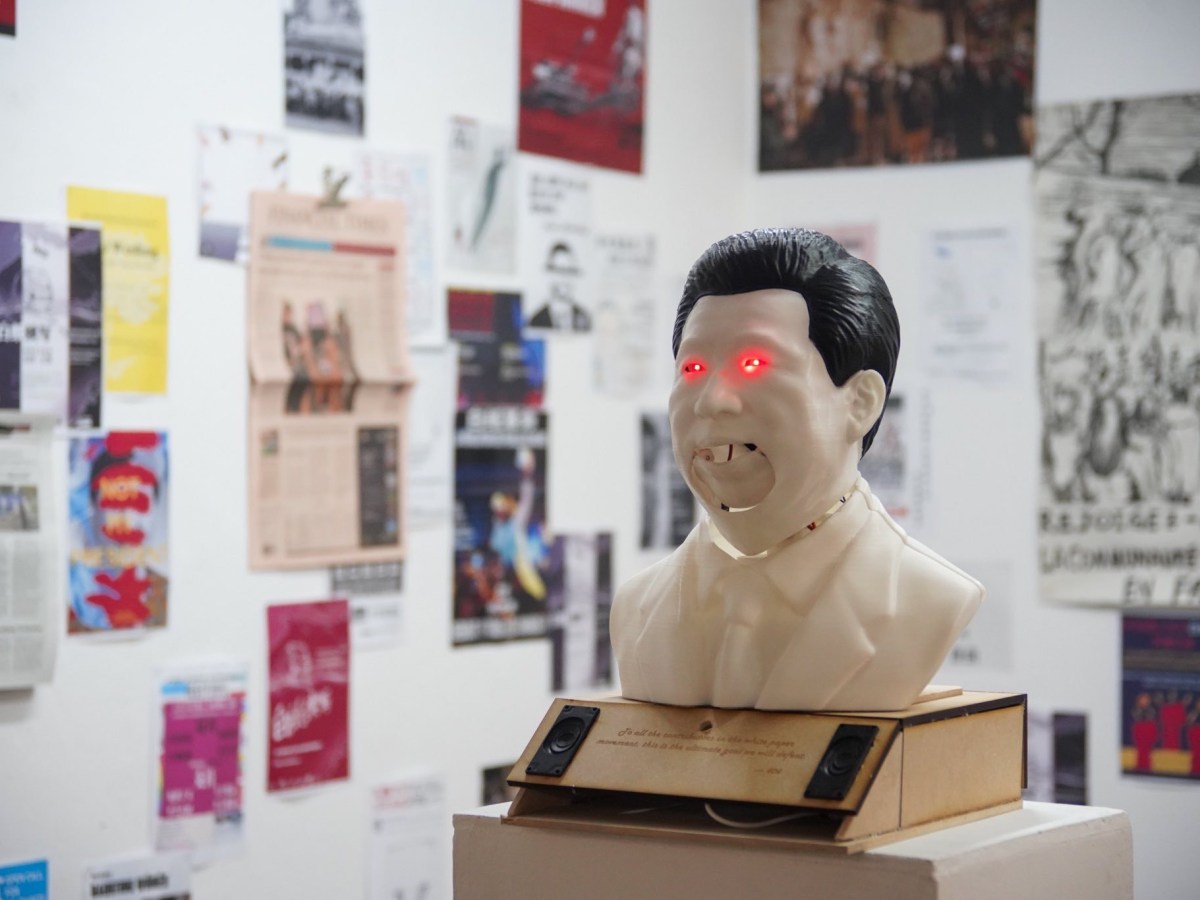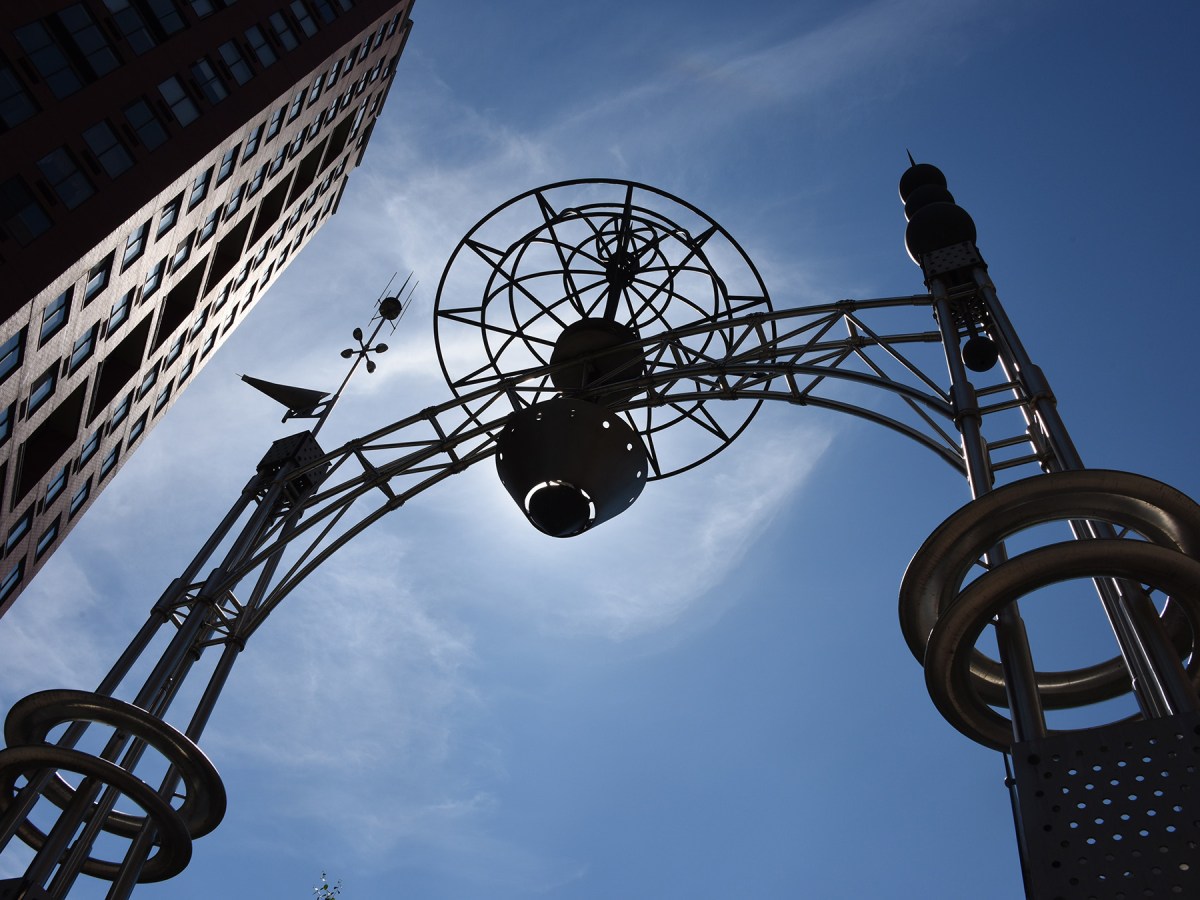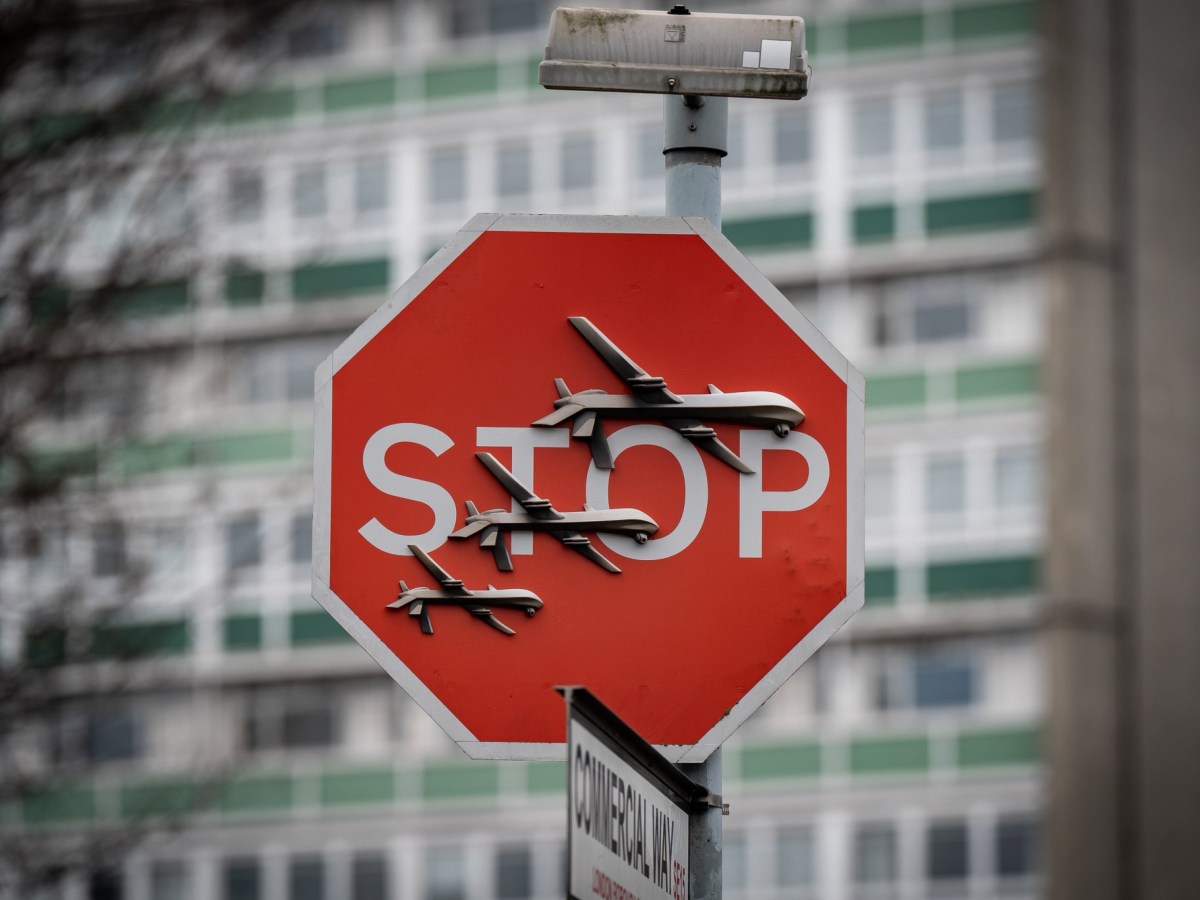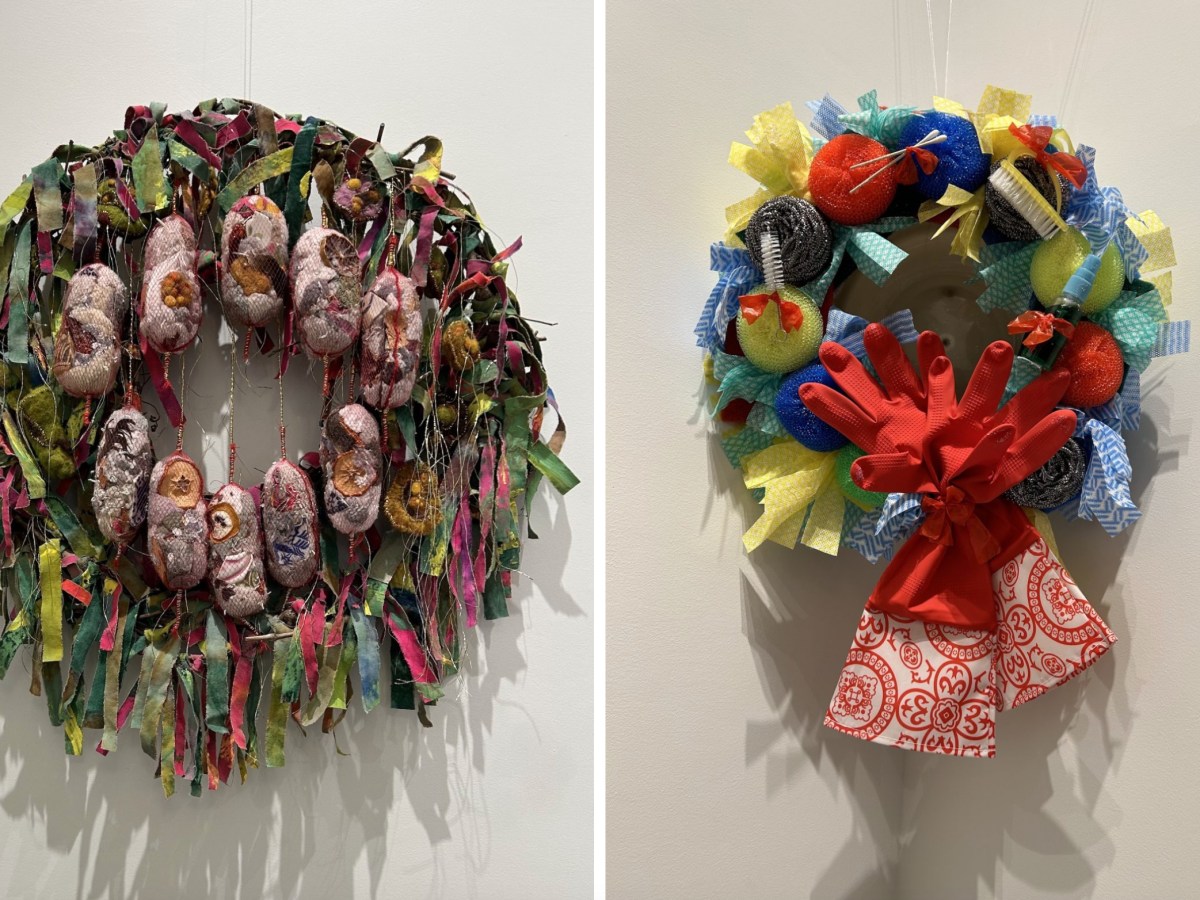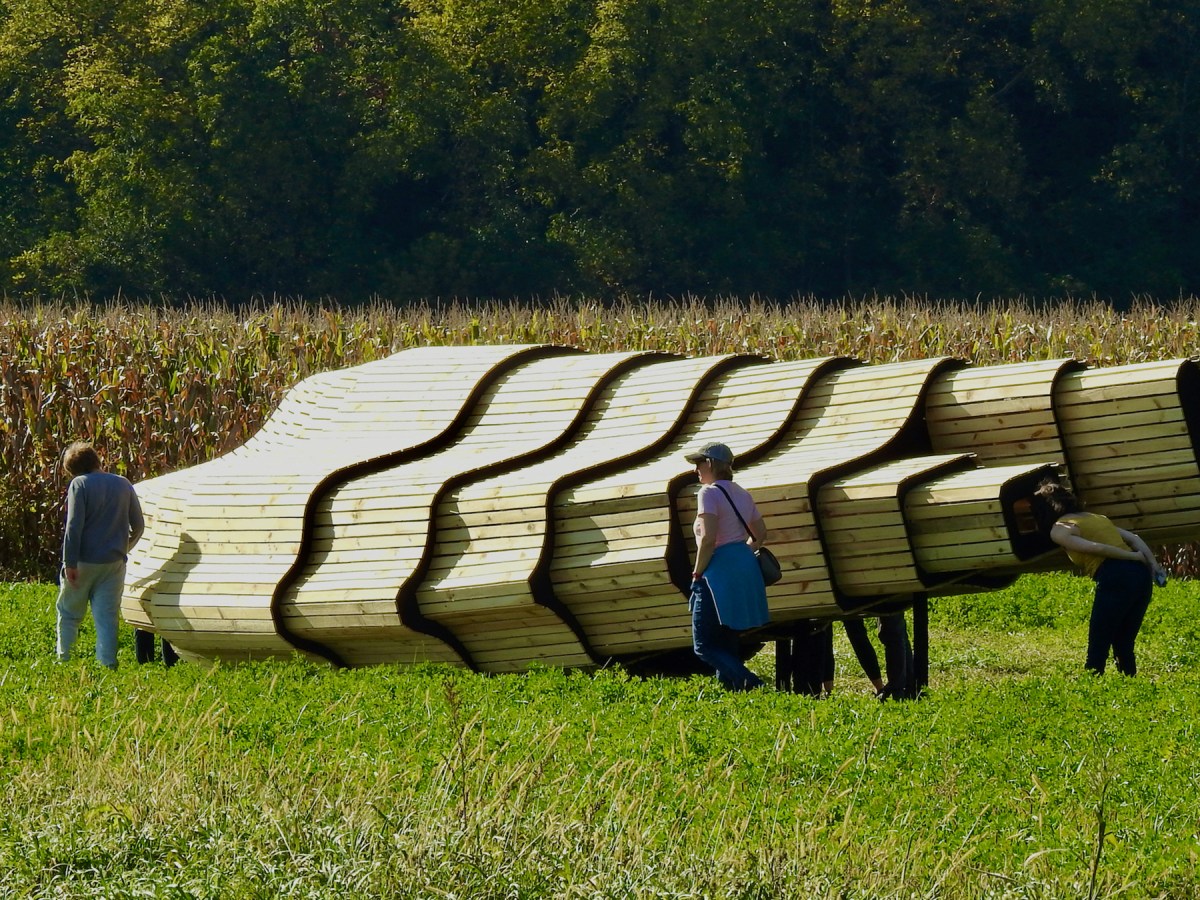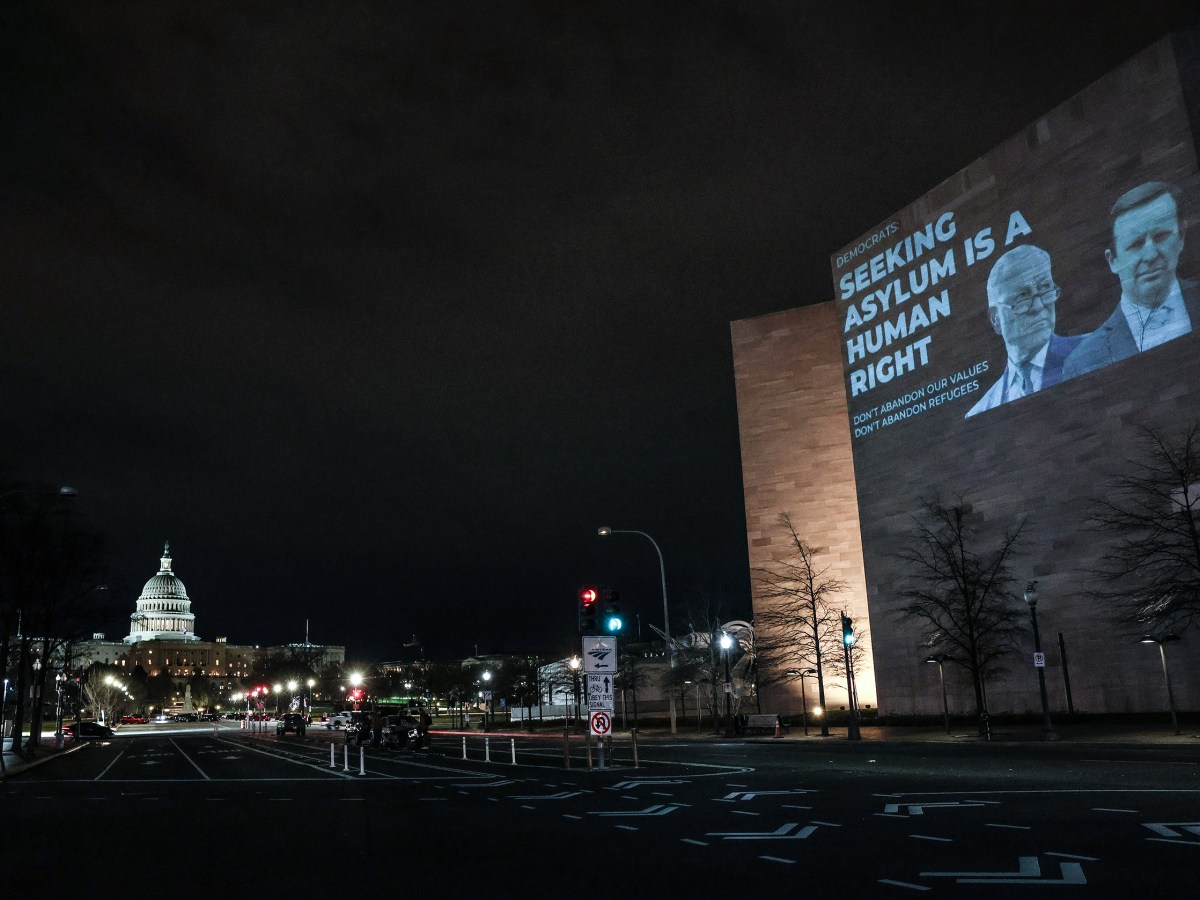Amber Hasan has been part of the Sister Tour, a troupe that performs in accompaniment to LaToya Ruby Frazier’s three-act photo series on the Flint, Michigan, water crisis, since Frazier came to document the human-made public health disaster in 2016.
“We’re still doing the same work, and the pipes still aren’t fixed,” Hasan told Hyperallergic this past Martin Luther King Jr. Day, before a performance adjacent to Frazier’s Act III, the last installment of the artist’s Flint Is Family in Three Acts, at the University of Michigan’s Stamps Gallery in Ann Arbor. “It’s still an ongoing issue.”
For their performance, Sister Tour works from what they know; namely, the relationship between Black women and water — one they trace through history, invoking the water orisha Oshun, the Igbo Landing Mass Suicide, public swimming pools as the site of vitriolic racial discrimination, and the daily battleground with city services and utilities over the safety (and lack thereof) of Flint’s drinking water. Flanked by their children, the three principal actors, Hasan, Shea Cobb, and comedian Niecole “Big Juicy” Middleton perform spoken word vignettes about these contentious and triumphant moments, constantly returning to the show’s refrain: “The water remembers.”
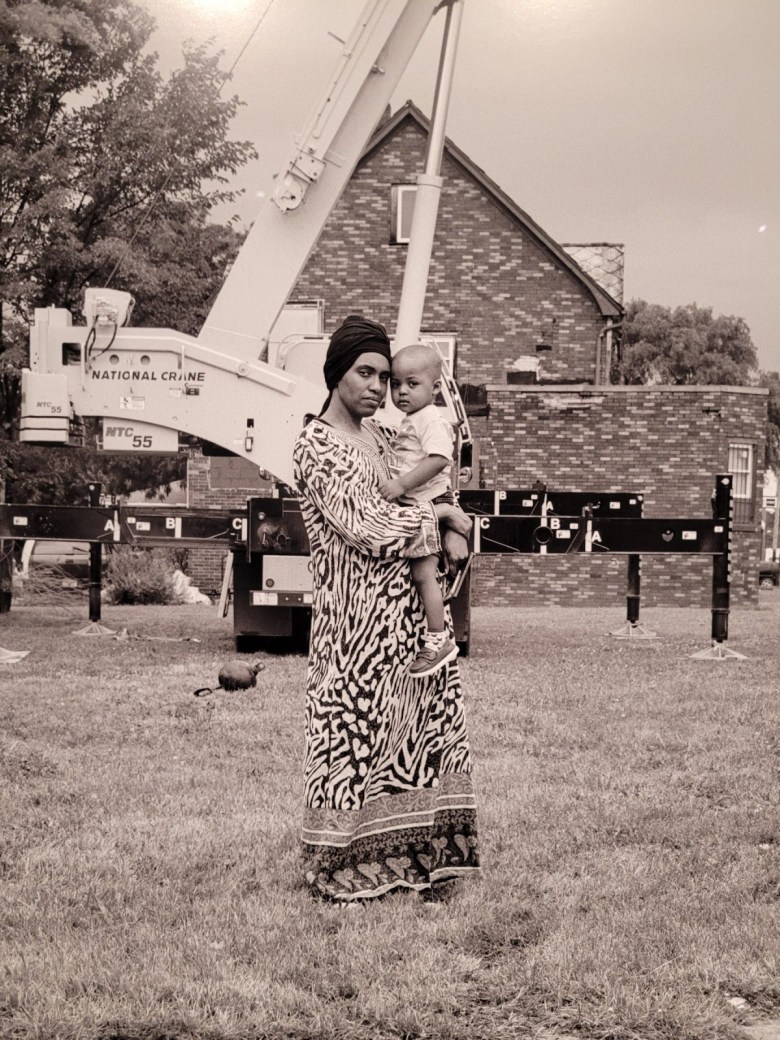
Since 2014, Flint has experienced the fallout of an emergency financial manager’s fateful decision to temporarily switch the municipal water source from Lake Huron to the Flint River as a cost-cutting measure. This triggered a chain of events that culminated in the lead poisoning of Flint’s mostly Black, largely poor residents; fatal outbreaks of Legionnaires’ disease; and an ongoing struggle for citizens to have access to safe, drinkable water in their homes. Whistleblowers in the medical and engineering communities brought the issue to light in 2015, and though efforts have been made to replace the city’s old and permanently compromised water systems, the fight for safe water in Flint rages on, almost a decade later.
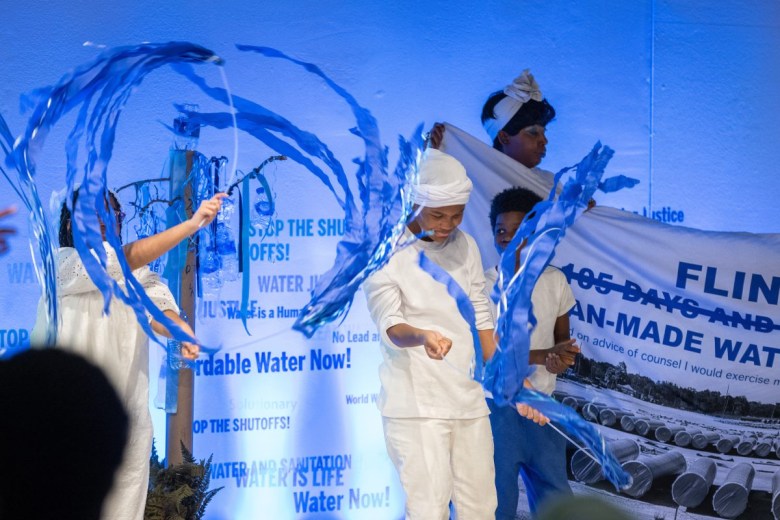
Frazier is not the only artist to take up activism in Flint, but her focus on the subject has lingered as the media zeitgeist moves on to other, fresher disasters. Flint Is Family In Three Acts traces the story of the Flint water crisis and beyond, as Frazier witnesses and documents the lives of several residents — including Hasan, Cobb, and their families — as they navigate the struggle for this most basic human necessity.
“As far as water activism goes, being a resident of Flint during the epicenter of the water crisis and having to endure some of the tragedy — from increased water bills, to lead in the water, bleachy-smelling showers, skin irritations, and rashes …” Cobb told Hyperallergic. “How did I get involved? I’m in it.”
Frazier, who received a 2015 MacArthur Genius grant for her work capturing the “consequences of postindustrial decline,” initially connected with Cobb and Hasan during the development of Act I, commissioned for a 2016 feature for Elle magazine. Act II followed Cobb and her daughter Zion as they moved to Newton, Mississippi, seeking relief from the environmental crisis in their home city. In Act III, Frazier returns to Flint with a man named Moses West, who invented an Atmospheric Water Generator that produces clean water by processing ambient precipitation. Through grassroots efforts, grant writing, and fundraising, Frazier was able to see West’s donated water system installed in Flint, where it currently provides safe and free drinking water for drive-up residents. The photos included in Act III, which serve as the backdrop for the performance, capture the process of installing the water generator in black and white, then transform into brilliant color once the water station is up and running, becoming a flashpoint and portrait studio for community.
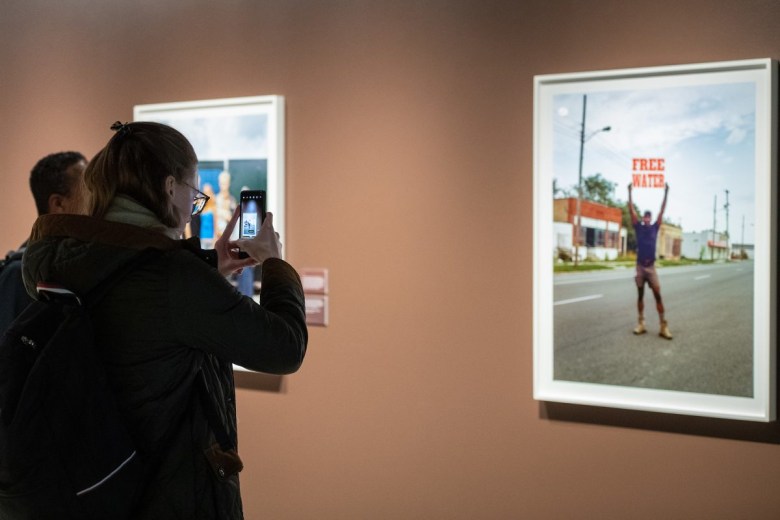
All three acts from Frazier’s photo series have been shown concurrently in Michigan over the last year in a collaboration between the Flint Institute of Arts, which ran Act I September to December of 2022; the Michigan State University Broad Art Museum, which continues to show Act II through January 29 of this year; and Stamps Gallery, which closed the presentation of Act III with the recent January 16 performance by Sister Tour. The event was packed with Flint residents, including former Flint Mayor Dr. Karen Weaver and former beauty shop owner Mary J. Williams, who offered up the empty lot that was once the site of her salon — to house the water generator.
“My telling of the Flint water crisis begins with a portrait of Shea Cobb, who was born and raised in Flint,” wrote Frazier in an essay included in the Flint Is Family in Three Acts publication. “In an aerial photograph, she is seen on a trail bridge that crosses the Flint River. She steadfastly stands above the river water that has poisoned her body and her city.”
Cobb, Hasan, and others in their troupe have performed alongside Frazier’s work at art venues ranging from the now-shuttered gallery Gavin Brown’s Enterprise to the San Francisco Museum of Modern Art. But there was a special feel to the Ann Arbor performance, attended by so many who appear in the images and have lived through the crisis.
“The performance is about doing all the things, not just voting,” said Hasan. “One of the walk-throughs I did [at the Stamps Gallery] was with a group of engineers. On an academic level and a technical level, we need engineers who have a heart for activism, and that can start with artists who have a heart for people. We need all of these people in all of these walks of life to have this same spirit of wanting to do good by people.”
“I’m not good with numbers,” she laughs. “I don’t have the patience to go to medical school, but this is one of the things that I can do to help be a part of the solution.”

